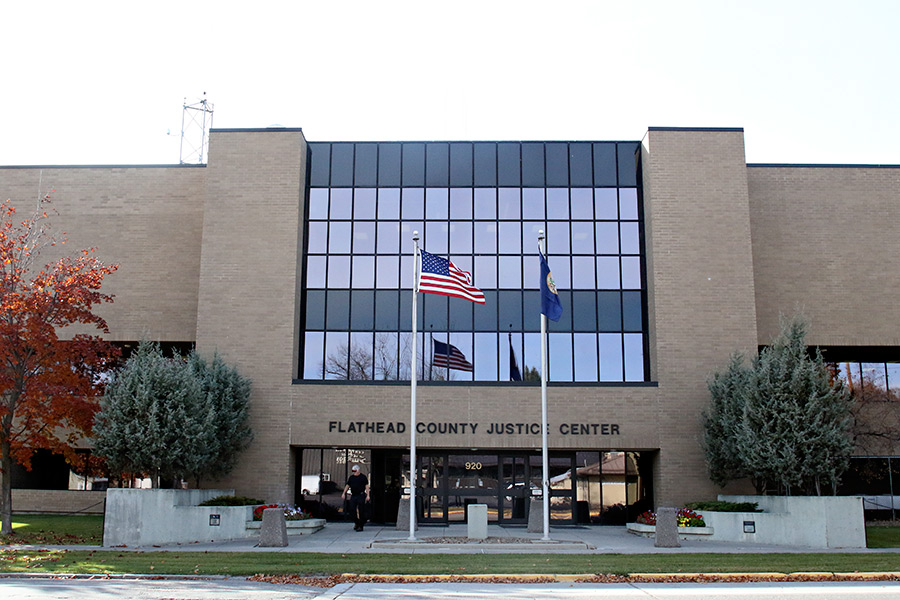After the official Dec. 5 certification of a ballot initiative called “Marsy’s law,” judges, attorneys, and other local officials in the Flathead Valley and across the state have voiced concerns about “vague” language in the constitutional amendment and potential costs that they say may make it hard to successfully implement.
“It’s a very laudable law,” Whitefish Municipal Judge Bradley Johnson said. “But there’s lots of things that need to be hammered out.”
The constitutional amendment, which garnered 66 percent of the vote in November’s election, seeks to codify certain rights for victims within the justice system, such as that to testify at any proceeding in the case, and to receive notice of developments in the case and prioritized restitution.
California businessman and criminal justice reform advocate Henry Nicholas organized the passage of the original Marsy’s Law in California in 2008 and almost exclusively funded Montana’s ballot initiative. Voters in Illinois, North Dakota, and South Dakota have passed similar laws.
Montana law stipulates that changes to the constitution approved by ballot initiative go into effect July of the following year, unless the amendment provides otherwise. While the initiative did not identify a start date, advocates of the bill have said that its intent was to be implemented immediately. The American Civil Liberties Union of Montana on Dec. 2 filed a petition with the state Supreme Court to hold the start date until July.
The ACLU called the amendment a “dramatic reinterpretation” of Montana’s criminal justice system, predicted it will create “significant” administrative and financial burdens, and argued that the July start date would give organizations time to comply.
But officials are saying they need more than just time to comply — they also need more guidance to understand the scope of the law’s mandates.
“From a roundtable discussion with judges, lawyers, and police, they all want to comply, but they don’t know how exactly to comply,” Johnson said.
The uncertainty boils down to vague and broad terminology: “What is a victim and what is a notification?” Columbia Falls Chief of Police Clint Peters asked at a Dec. 5 city council meeting.
“Nowhere in the law do they define victim, or adequate notice, or means of notice,” Johnson said.
The law does describe a victim as the “person who suffers direct or threatened physical, psychological, or financial harm as a result of the commission or attempted commission of a crime,” which appears to include victims of everything from a fender bender to a violent crime. The law further broadens the category to include the victim’s spouse, parent, grandparent, child, sibling, grandchild, or guardian.
The language of the initiative provides even less guidance regarding the means of notification, leaving officials wondering whether email meets the requirement, or if only a phone call would be sufficient. The law also does not note whether a confirmed receipt of notification would be required, nor does it stipulate what kind of record-keeping system would be needed to document compliance.
Had the bill been enacted through the typical legislative process, Johnson speculated, these basic points would have already been thoroughly debated and defined. But because it was a ballot initiative that went straight to voters, Montana legislators did not have the opportunity to hone its language.
“I do expect that in the next weeks and months, and during the legislative session, we will bring all the stakeholders together to work on implementation legislation,” Chuck Denowh, state director of Marsy’s Law, said. “And guidance will come from the Attorney General’s office. I think it’s correct that there’s going to be a transition period.”
Denowh also said that existing statutory requirements for victim notification are similar to the new mandates, and he doesn’t “think there would be any real difficulty” complying with Marsy’s law.
Despite the uncertainty and assurances that the terminology will be elucidated, executive and judicial organizations must agree on some working interpretation in the event that the Supreme Court decides that the law is immediately in effect.
“We’re working with the police and the courts, and we have a basic outline of what we would do,” Kalispell City Attorney Charlie Harball said. “We operate on the assumption it’s going to go through. We have to.”
Yet, Harball noted, if the law were to be implemented immediately, “we don’t have [the funds] in our budget” to comply with the city’s interpretation of the law.
“It will have a very large impact,” he said. “July 1 gives local departments an opportunity to see what’s coming and budget for it.”
He said that he will likely need to hire another employee. Other city officials across the valley also expect the need for additional manpower, including Columbia Falls City Manager Susan Nicosia, Whitefish City Attorney Angela Jacobs, and Kalispell Chief of Police Roger Nasset.
Denowh said that the “notification requirements can be accomplished without manpower,” and that “we think it’s really time for the state and for counties to embrace more automated systems.”
For now, it’s still “conjecture for what the costs will be,” Harball said, because the scope of the amendment has yet to be determined.
“We know it is going to be burdensome,” Nasset, the Kalispell police chief, agreed. “But we don’t know what the extent is going to be.”
“Whatever happens in the long run,” he continued, “hopefully things will improve for victim notification just because we’re having this conversation.”
